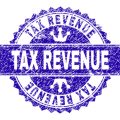Introduction to HMRC and Self-Assessment
If you’re new to the world of UK taxes, hearing terms like “HMRC” and “self-assessment” can feel a bit intimidating. Don’t worry—it’s really not as complicated as it first seems! HMRC stands for Her Majesty’s Revenue and Customs, which is basically the UK government department responsible for collecting taxes. Now, self-assessment is the process where individuals (like freelancers, small business owners, or anyone with untaxed income) report their own earnings and pay any tax they owe. Rather than your employer sorting everything out for you through PAYE, you take charge of declaring what you’ve earned over the year. Why do deadlines matter so much? Well, missing them can lead to fines or interest charges, and nobody wants that kind of hassle! So, getting your head around the key dates helps keep things stress-free and ensures you stay on the right side of HMRC.
2. Key Self-Assessment Deadlines Explained
If you’re new to self-assessment in the UK, keeping track of HMRC deadlines can feel a bit daunting at first. Missing one could lead to penalties, so it’s good to know exactly what’s expected and when. Let’s break down the main dates you should circle on your calendar, from registration right through to submitting your tax return.
A Guide to the Main Self-Assessment Dates
Whether you’re self-employed, a landlord, or just have extra income that isn’t taxed at source, these are the essential deadlines you don’t want to forget:
| Deadline | What It’s For | Details |
|---|---|---|
| 5 October | Registration for Self-Assessment | If you’ve never submitted a tax return before, this is when you need to let HMRC know you need to file one for the previous tax year. |
| 31 October | Paper Tax Return Submission | The deadline for submitting a paper tax return. Most people now file online, but if you prefer good old-fashioned post, this is your cut-off date. |
| 31 January | Online Tax Return Submission & Payment Due | This is probably the most important date: the deadline for filing your online return and paying any tax owed for the previous tax year. It’s also when your first payment on account (if applicable) is due. |
| 31 July | Second Payment on Account Due | If you make payments on account, the second instalment is due by this date each year. |
A Few Extra Tips for Staying on Top of Deadlines
If any of these dates fall on a weekend or bank holiday, HMRC still expects everything to be sorted by the next working day—so don’t leave it until the last minute! Setting reminders or marking your diary can help keep things stress-free. And remember, registering late or missing deadlines usually means fines, so best not to risk it.
![]()
3. What Happens If You Miss a Deadline?
Missing an HMRC self-assessment deadline isn’t the end of the world, but it can get a bit pricey and stressful if you’re not careful. First things first: if you miss the 31st January online filing deadline (or 31st October for paper returns), you’ll automatically get a £100 penalty—even if you don’t owe any tax or have paid everything already. The longer you leave it, the more expensive it gets. After three months, daily penalties start kicking in at £10 per day (up to a maximum of £900). At six months, there’s another penalty of 5% of the tax due or £300, whichever is greater. If you still haven’t sorted things by twelve months, expect another 5% or £300 on top.
HMRC also charges interest on late payments and may add further penalties for persistent lateness or incorrect returns. It’s not just about the money—missing deadlines can cause unnecessary hassle and worry. If you know you’re going to be late, don’t panic! Contact HMRC as soon as possible. Sometimes, if you have a genuine reason—like serious illness—they might be understanding and reduce or waive penalties. It’s always better to keep them in the loop than to bury your head in the sand.
If you’ve missed a deadline, file your return and pay what you owe as soon as possible to stop penalties from increasing. Set reminders on your phone or calendar for next year, and maybe even aim to submit early next time. Life happens, but with a bit of planning (and a good cup of tea), you can avoid these headaches in future!
4. Common Questions About Tax Deadlines
If you’re new to the UK, it’s completely normal to feel a bit lost when it comes to HMRC tax deadlines. Here, I’m sharing answers to some of the most common dilemmas that newcomers face during their first Self-Assessment season. Hopefully, this clears up any confusion before those key dates sneak up on you!
What if I miss the 31 January deadline?
This is probably the top worry for most people. If you submit your tax return after 31 January, HMRC will issue an automatic £100 penalty – even if you don’t owe any tax! If you continue delaying, further penalties and interest can pile up.
Is there a difference between registration and submission deadlines?
Absolutely. Here’s a quick breakdown:
| Action | Deadline |
|---|---|
| Register for Self-Assessment (if new) | 5 October (after end of tax year) |
| Paper tax return submission | 31 October |
| Online tax return submission | 31 January |
| Tax payment due | 31 January |
You only need to register once, but returns and payments are annual tasks!
Can I change or amend my submitted return?
No worries if you spot a mistake later – you have until 12 months after the original deadline to make changes online.
What happens if I can’t pay my bill in full?
Don’t panic! HMRC offers “Time to Pay” arrangements. Contact them as soon as possible to discuss your options and avoid unnecessary penalties.
How do public holidays affect deadlines?
If the deadline falls on a weekend or bank holiday, HMRC still expects your return or payment by the next working day. But honestly, it’s best not to leave things that late if you can help it!
A Quick Recap for Newcomers
| Your Situation | Main Deadline to Remember |
|---|---|
| First time filing in the UK? | Register by 5 October |
| Using paper forms? | Submit by 31 October |
| Filing online? | Submit by 31 January |
If you keep these basics in mind, you’ll be well ahead of the curve – and hopefully less stressed come tax season!
5. Tips to Stay Organised for Tax Time
Let’s be honest—sorting out your self-assessment tax return isn’t exactly a walk in Hyde Park. But with a bit of organisation and some local know-how, you can make the whole process much less stressful. Here are some friendly tips and handy UK-based tools to help you keep paperwork in order, set timely reminders, and avoid that dreaded last-minute scramble.
Get Your Documents Sorted Early
The sooner you gather your paperwork, the better. Keep hold of your P60s, P45s, bank statements, invoices, receipts, and any letters from HMRC. Many Brits find it helpful to use a simple filing folder or even a shoebox labelled “Tax Stuff”—it doesn’t have to be fancy, just consistent!
Use Digital Tools Made for the UK
If paper isn’t your thing, apps like HMRC’s Personal Tax Account, FreeAgent, or QuickBooks UK are fantastic for tracking income and expenses throughout the year. They’re designed with British tax rules in mind, so you’ll get local support if you run into trouble.
Set Reminders (and Don’t Ignore Them!)
Add key dates to your phone calendar—31st January for online submission is the big one! Google Calendar or Apple’s Reminders app work well, but you can also sign up for HMRC’s email alerts for an extra nudge. A post-it note on the fridge never hurts either!
Stay in Touch with HMRC
If you’re not sure about something, don’t leave it until the last minute. The HMRC helpline is there to help (though they do get busy as deadlines approach), and their website offers lots of clear guides tailored to UK taxpayers.
Avoid Last-Minute Panic
Start early and break things down into manageable steps—set aside an hour each week leading up to the deadline. Remember: a cuppa tea can make even tax time feel a bit more bearable!
6. Where to Find Help and Local Resources
Tackling your self-assessment tax return doesn’t mean you have to go it alone—there’s a whole host of UK-based support options out there if you ever get stuck or just want some peace of mind. Here’s a quick rundown to help you find the right kind of assistance, whether you prefer a friendly chat or hands-on guidance.
HMRC Helplines and Online Support
The first port of call for most people is the HMRC helpline. You can ring them up if you’ve got questions about deadlines, paperwork, or technical issues with the online system. They also have webchat services and loads of online guides, which are super handy for answering common queries without waiting on hold.
Local Tax Advice Centres
If you’re after something more personal, many towns across the UK have local advice centres where you can drop in for face-to-face help. Organisations like Citizens Advice often run sessions specifically on tax returns, explaining things in plain English and helping you avoid any costly mistakes.
Community Tax Workshops
Especially around key deadlines, keep an eye out for community tax workshops at libraries, community halls, or even coworking spaces. These are usually free or low-cost and offer practical tips from experienced volunteers or accountants. You’ll often find others in the same boat, making it less daunting to ask questions.
Professional Accountants and Bookkeepers
If your finances are more complicated—or you just want to be absolutely sure everything’s above board—it might be worth hiring a professional accountant or bookkeeper. Many offer one-off consultations tailored to self-assessment, so you don’t have to commit long-term.
Online Forums and Peer Support
Don’t underestimate the value of online forums like MoneySavingExpert or Reddit’s r/UKPersonalFinance, where everyday folks share their experiences and solutions. Sometimes, a quick browse through these communities can save hours of head-scratching.
No matter what stage you’re at with your self-assessment tax return, there’s plenty of help available across the UK—so don’t hesitate to reach out if things get confusing. With the right resources, meeting those HMRC deadlines can feel much more manageable!


